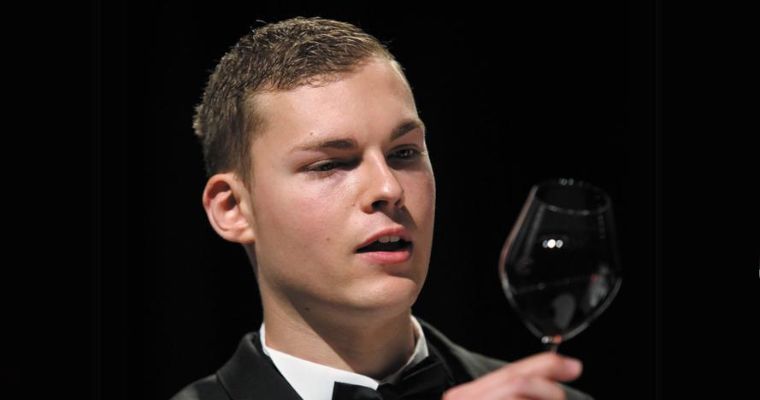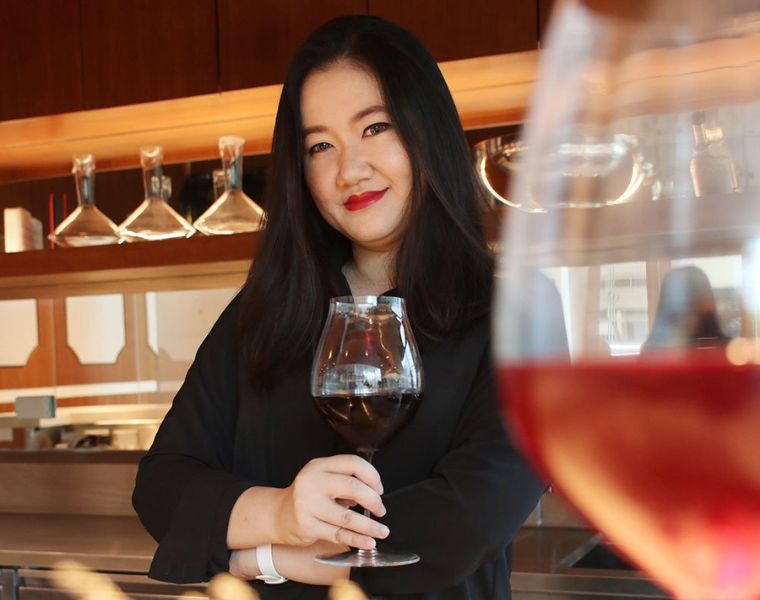Super Early Bird Deadline
October 31, 2025
Judging
Date
May 18, 2026
Winners
Announced
June 10, 2026

In a rapidly evolving wine industry, the role of sommeliers has never been more crucial. As wine consumption patterns shift, particularly among younger generations, there is a growing need to rethink traditional sommelier education to ensure that young people not only appreciate wine but also consider pursuing careers working with wine on-premise.
In a recent interview, the wine business expert Robert Joseph said that he regarded sommeliers as the people to learn from. “They are the psychologists of the wine world,” he stated. Regarding marketing prowess, somms know how to read their customers and answer the critical questions: “Who will want this wine?” “Why will they buy this wine?”
These questions have become increasingly important as wine consumption encounters obstacles, especially, we are told, among a segment: Millennials and members of Gen Z. This includes an abstentionist attitude and a negative view of all alcohol among some. For others, there’s simply a lack of engagement, which the industry must address.
Sommeliers possess a unique ability to understand and cater to consumer preferences, making them invaluable assets in this regard. Despite this recognition, sommeliers often do not receive the credit they deserve for their role in shaping the wine culture.
It’s a service profession, and traditionally somms worked their way up, starting as twentysomethings on the floor: no college degree required. Thus, the industry’s current preoccupation with younger people as wine consumers rang a bell when an administrator at the Culinary Institute of America recently told me she was worried about enrollment in wine education programs. The gist was that Gen Z’s disinterest in wine had extended to falling enrollment in professional wine training programs.
If that’s the case, we will rapidly have fewer sommeliers alongside fewer people drinking wine, which could be disastrous. New York Times wine columnist Eric Asimov highlighted the sommelier crisis in a recent article.
In the end, however, I believe “Zilennials” show promise as both wine consumers and wine professionals. Zilennials count as younger Millennials and those Gen Zs of legal drinking age. They approach wine differently, but not all is gloom and doom. We may have to become smarter about marketing and learn how to segment markets better, just as sommeliers do. A couple of recent reports bear that out.
Honore Comfort, Vice President of International Marketing at the California Wine Institute, acknowledges the challenges facing the industry, particularly with the younger demographic. In an article in Meininger’s, she states, "For a few different reasons, that audience is at risk of not coming into wine, or staying with wine, as previous generations have." Comfort concluded that “this group is fundamentally different from previous generations, partly because they’re under significant financial pressure, but also because of their unique relationship with technology.” This recognition has led the Wine Institute to develop a strategic plan aimed at engaging “zillennials.”
To understand this demographic better, the Wine Institute conducted qualitative consumer research with the help of brand strategist Mark Barden and consumer behavior expert Paul Peterson. Comfort notes that while 'zillennials' are theoretically open to wine, they are often too preoccupied with the challenges of everyday life to fully engage with it. “Somewhat surprisingly, what we were hearing was exactly what we would want to hear,” Comfort told Meininger’s. “They recognize that wine brings a certain sophistication, that it’s about enjoyment and relaxing, and that it’s aspirational.”
One key insight from their research is that 'zillennials' feel overwhelmed by the choices available in the wine market. To address this, the Wine Institute is exploring gamification as a way to make wine more approachable. Comfort explains, "’playing games and engaging with their friends through games, either in person or virtually, is really an important piece of this,’ as is wit and humor.”
Karen MacNeil, a prominent American wine writer, has also taken action to counter negative perceptions of wine. Her initiative, Come Over October, aims to promote wine as a social and positive choice, countering the growing popularity of events like Dry January and Sober October. MacNeil, in collaboration with communications professionals Gino Colangelo and Kimberley Noelle Charles, founded COME TOGETHER—A Community For Wine LLC to create and share positive, inclusive consumer information about wine.
In the UK, attitudes towards wine consumption are also changing, with younger consumers spending more on quality wine and seeking unique and adventurous options. This is encouraging and provides insight. Hannah Crosbie, in her February 2024 Financial Times article, highlights this trend, noting that while young people might be drinking less, they are spending more and seeking higher quality. This shift presents both challenges and opportunities for sommeliers, who must adapt their offerings to meet changing preferences.

Pierre Jacob, Best Young Sommelier of France; source: Sommeliers International
Crosibie, a young wine writer and broadcaster from Edinburgh, summarized:
What wine represents for young people has shifted dramatically. For many, it has moved from something necked fast to get drunk to an emblem of thoughtful consumption — an expensive habit that can be displayed on social media in lieu of a house or car. It’s also probably no coincidence that when I posted a call-out on social media asking for my young followers’ favorite wines, all of them were ready to drink and no more than a few years old. These are wines sold with the intention of consumption in the next few years, designed to be enjoyed in the current moment.

Source: Le Cordon Bleu, Thailand
From the above reports, it seems clear that traditional wine and sommelier education must evolve to better engage young people and inspire them to pursue careers working with wine on-premise. The whole idea of a “sommelier” may be up in the air and certainly requires reconsideration. Some potential changes to be pondered include:
Incorporating Technology: Younger generations are highly tech-savvy, so integrating technology into wine education could make it more appealing. This could include virtual tastings, online courses, or interactive learning platforms.
Focus on Sustainability: Highlighting sustainable practices in vineyards and wineries could resonate with environmentally conscious young people. Teaching the importance of sustainability in wine production could make the industry more attractive to them.
Diverse Wine Offerings: Emphasizing the diversity of wine styles and regions could capture the interest of young people who value variety and exploration. Introducing them to lesser-known grape varieties and regions will expand their appreciation for wine.
Practical Experience: Providing hands-on experience in wine service and hospitality settings could give young people a taste of what it's like to work on-premise. Internships, apprenticeships, or part-time roles could help them see the potential of a career in the wine industry.
Storytelling and Branding: Younger generations are drawn to authentic stories and brands with a purpose. Incorporating storytelling into wine education, highlighting the history and culture behind each wine, could make it more compelling for them.
Entrepreneurial Skills: Teaching entrepreneurial skills could inspire young people to see the wine industry as a place where they can innovate and create. Encouraging them to think creatively about wine will open up new possibilities for working with wine on-premise.
Networking Opportunities: Providing networking opportunities with industry professionals could help young people connect with mentors and peers who share their passion for wine. Building a community around wine could make the industry more inviting and inclusive.
Flexibility in Education: Recognizing that young people have diverse interests and career aspirations, offering flexible education paths that allow them to tailor their learning to their goals could attract more students to wine education programs.
By adapting traditional wine and sommelier education to better align with the interests and values of young people, the industry can ensure that the next generation is not only interested in wine but also excited about working with wine on-premise. We do not want to lose the psychologists of the wine world.
Header Image: Zillenial Sommeliers; source: Chaine des rotisseurs
Enter your Wines now and get in front of top Sommeliers, Wine Directors, and On-Premise Wine Buyers of USA.
